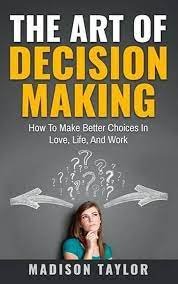In every aspect of our lives, from the mundane to the life-altering, decision making plays a crucial role. Whether it’s choosing what to have for breakfast or making significant career choices, the ability to make effective decisions is an essential skill. However, many people struggle with decision making, often feeling overwhelmed or uncertain about the outcomes. Fortunately, there are several techniques and strategies that can help improve decision-making abilities, leading to better choices and increased confidence in the decision-making process.
Before making any decision, it’s important to clearly define your objectives and priorities. Take the time to identify what you hope to achieve and what factors are most important to you. By doing this, you create a framework that guides your decision-making process and enables you to evaluate options more effectively.
To make informed decisions, it is crucial to gather relevant information and explore alternative options. Conduct thorough research, consult trusted sources, seek advice from experts, and consider different perspectives. The more information you have, the better equipped you are to evaluate the potential outcomes and make a well-rounded decision.
One popular technique for decision making is creating a pros and cons list. List the advantages and disadvantages of each alternative, considering both short-term and long-term implications. By visualizing the potential benefits and drawbacks, you can gain a clearer understanding of the potential risks and rewards associated with each choice.
Every decision involves an opportunity cost – the potential benefits or opportunities you might be giving up by choosing one option over another. Consider the trade-offs involved and assess the value of the opportunities you might be sacrificing. Understanding the opportunity cost can help you make more thoughtful decisions and avoid regrets in the future.
While logical analysis is important, intuition can also play a significant role in decision making. Our instincts often draw upon our past experiences and subconscious knowledge. Learn to trust your gut feelings, especially when faced with choices that involve uncertainty or limited information. However, be mindful of biases or emotional influences that may cloud your judgment.
When making decisions, it’s helpful to envision potential outcomes and assess their impact. Consider both the short-term and long-term consequences of your choices. Evaluate the risks and rewards associated with each alternative, and weigh them against your objectives and priorities.
Decision making is an ongoing process of learning and growth. Seek feedback from trusted individuals who can offer different perspectives or insights. Reflect on past decisions and their outcomes, identifying areas for improvement. By embracing feedback and learning from experience, you can refine your decision-making skills and make better choices over time.
Mastering the art of decision making is a lifelong endeavor. By employing these techniques and strategies, you can enhance your ability to make better choices and navigate through life’s challenges more effectively. Remember to define your objectives, gather information, evaluate alternatives, trust your intuition, and learn from both successes and failures. With practice and a systematic approach, you can develop the skills necessary to make confident and well-informed decisions in any situation.


